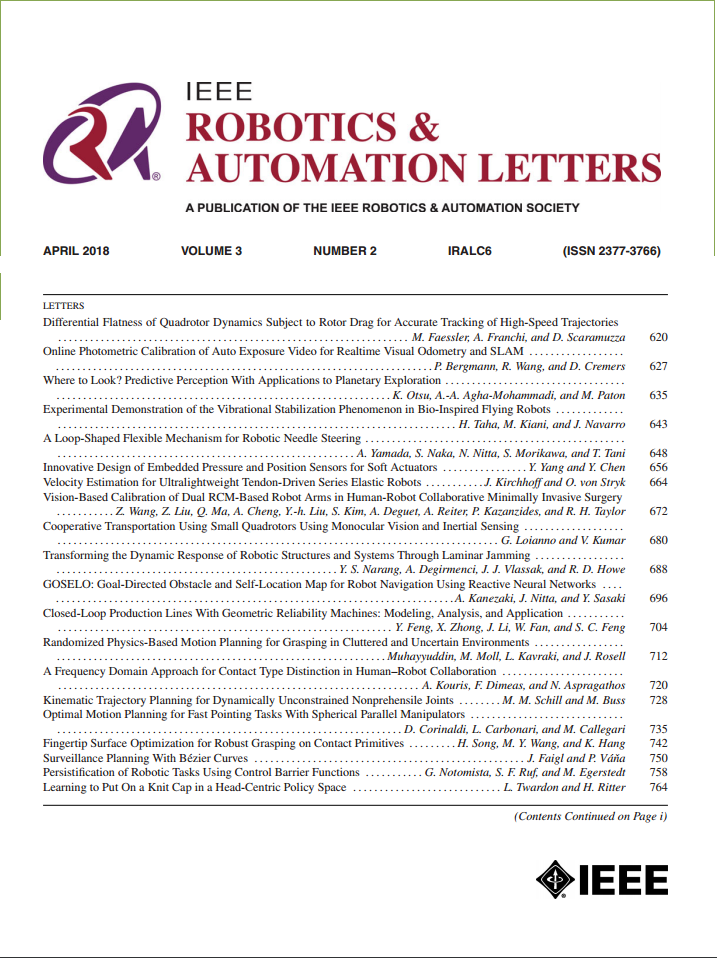Semi-Supervised Language-Conditioned Grasping With Curriculum-Scheduled Augmentation and Geometric Consistency
IF 4.6
2区 计算机科学
Q2 ROBOTICS
引用次数: 0
Abstract
Language-Conditioned Grasping (LCG) is an essential skill for robotic manipulation and has attracted increasing interest. Recent LCG models have made great progress, but need numerous paired image-text-pose annotations for fully supervised learning, which are tedious and expensive. Semi-supervised learning has provided a viable solution, while they still encounter the following challenges for LCG: (i) Over-distorted data perturbations result in slow and unstable convergence for multi-modal inputs in the early stage. (ii) Inconsistency between the perceptive and grasping locations leads to a degradation of grasp accuracy. In this letter, we propose a semi-supervised language-conditioned grasping framework that achieves data-efficient object grounding and grasping detection based on language description. Concretely, we introduce a Curriculum-Scheduled augmentation and Geometric Consistency (CSGC) strategy to address the above problems. Concretely, We design a curriculum-scheduled augmentation to progressively improve data diversity from easy to difficult, facilitating stable knowledge distillation and model convergence. Meanwhile, we present a geometry-aware consistency regularization to constrain the region alignment between object perception and grasping confidence, improving the quality of pseudo-labels and grasp accuracy. Extensive experimental results demonstrate the effectiveness and practicability of our proposed method in the limited labeled data.求助全文
约1分钟内获得全文
求助全文
来源期刊

IEEE Robotics and Automation Letters
Computer Science-Computer Science Applications
CiteScore
9.60
自引率
15.40%
发文量
1428
期刊介绍:
The scope of this journal is to publish peer-reviewed articles that provide a timely and concise account of innovative research ideas and application results, reporting significant theoretical findings and application case studies in areas of robotics and automation.
 求助内容:
求助内容: 应助结果提醒方式:
应助结果提醒方式:


